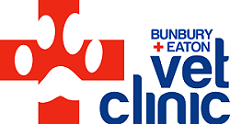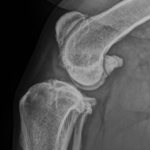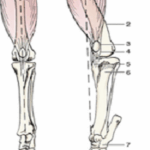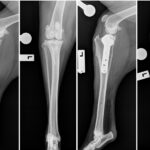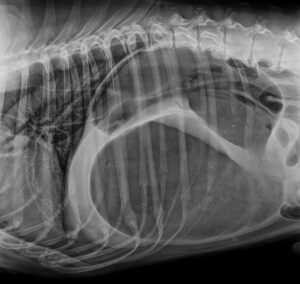
GDV in a dog.
What is GDV?
Bloat, or Gastric Dilatation and Volvulus (GDV), is a severe and rapidly fatal condition which often occurs in large, deep chested dogs. It occurs when the stomach experiences an abnormal accumulation of gastric ingesta and gas (dilatation) which may lead to rotation of the stomach (volvulus).
Risk Factors
There are several factors that increase this risk of a dog experiencing a GDV, with breed being one of the most important factors. The following breeds are at an increased risk of suffering from GDV:
- German Shepherd Dogs
- Irish Setters
- Gordon Setters
- Great Danes
- Saint Bernards
- Dobermann Pinschers
- Weimeraners
- Boxers
- Standard Poodles
- -oodle breeds, such as Labradoodles
- Other giant and deep chested breeds.
Other factors that can contribute to the risk of GDV include eating from raised bowls (you should always feed your dog at ground level), being highly stressed, old age, and having a relative dog which has experienced GDV.
Signs of GDV
The most common signs of GDV include the dog trying to vomit, the abdomen getting larger, breathing issues, and collapse. Left untreated GDV is rapidly fatal. Emergency stabilization and surgery is required to treat this condition, and can cost in the range of $3000-6000.
How to Minimise the Risk of GDV
To help minimise the risk of GDV occurring, we recommend the following for dogs at a high risk:
- Consider a “prophylactic gastropexy”. This is where the stomach is permanently attached to the abdominal wall, dramatically reducing the risk of it being able to twist. This is often done at the same time as the pet is surgically sterilised. With a reduced availability of local after-hours care in the greater Bunbury region, we would strongly recommend owners of at-risk dogs consider this procedure
- Feed several small meals a day (instead of one large meal).
- Restrict exercise for one hour before and after feeding.
- Separate dogs if needed to prevent competition and rapid eating.
- Feed at ground level.
If you would like more information on this procedure, or to book your dog for a prophylactic gastropexy, please feel free to contact the clinic to talk to one of our friendly team.
